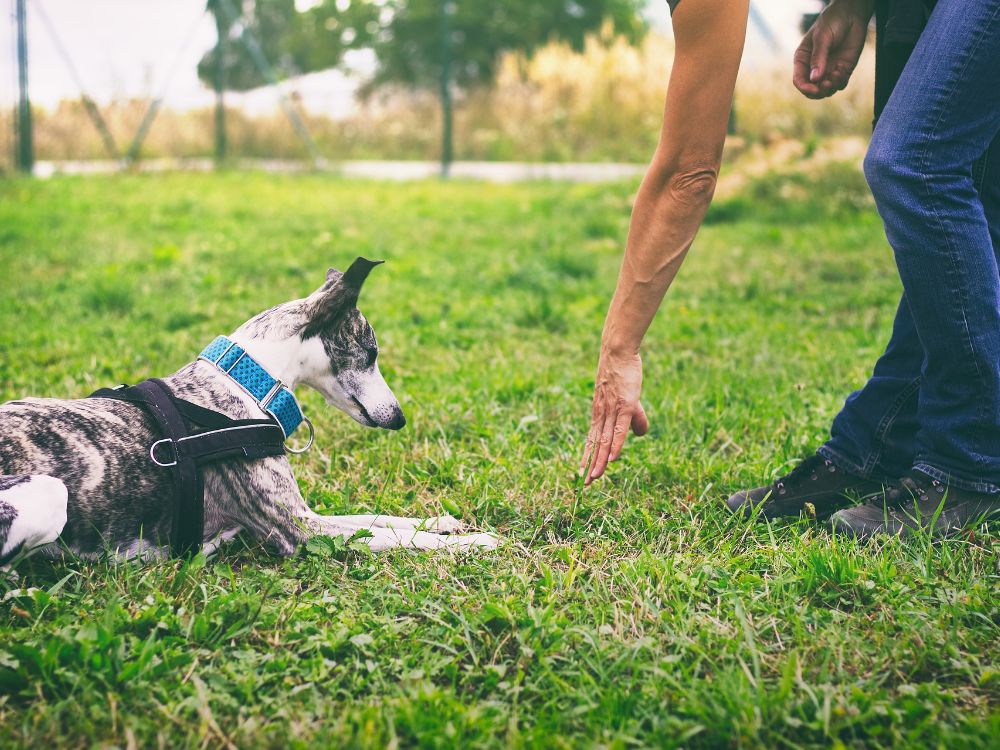
Paws and Reflect: Exploring the Advantages of Dog Ownership and Dog Training

In the realm of pets, various companions bring joy, comfort, and liveliness to our homes. From the mystic aquatic universe in a fish tank to the cozy purrs of a cat, every pet fills a unique niche in its owner’s life. However, one pet is popular across cultures and continents: the faithful, exuberant, and loving dog.
In this blog post, we will wag our tails through the numerous benefits that owning a dog can bring to your life. First, owning a dog brings immense joy and fulfillment to our lives. The unconditional love, unwavering loyalty, and constant companionship of furry friends make them cherished members of our families. But dog ownership offers numerous benefits beyond the emotional connection that can positively impact our physical and mental well-being. This article will explore the incredible benefits of having a dog and how dog training and puppy training further enhance these advantages.
Let’s dive into the positive impact that dogs have on our lives!

The Emotional Benefits of Dog Ownership
Dogs are masters of unconditional love and unwavering loyalty. Their presence alone can brighten our moods and provide us with constant companionship. So let’s explore the emotional benefits that come with owning a dog.
Companionship and Unconditional Love
When you have a dog, you’re never alone. Dogs offer a deep level of companionship, always by your side through thick and thin. Their ability to provide unwavering love and acceptance creates a profound bond that brings immense joy and comfort.
Reduced Stress and Anxiety
Engaging with dogs has been proven to induce a tranquil effect on our physical and mental states. Petting a dog releases oxytocin, a hormone that reduces stress and anxiety. The presence of a dog can help us relax, unwind, and alleviate the pressures of daily life.
Enhanced Mood and Happiness
Dogs possess an incredible ability to induce happiness in us, lightening up our faces with smiles and filling our hearts with joy. Their playful nature and infectious enthusiasm can lift our spirits and enhance our overall mood. Spending time with a dog can brighten even the dullest of days.
Decreased Feelings of Loneliness and Isolation
Loneliness can be a common struggle, but having a dog as a companion can alleviate these feelings. Dogs provide unceasing companionship and act as faithful allies, always prepared to lend an ear and bestow consolation. Consequently, they can foster a sense of inclusion and alleviate sensations of solitude.
Physical Health Benefits of Having a Dog
The benefits of dog ownership extend beyond emotional well-being and can positively impact our physical health. So let’s explore how having a dog can contribute to a healthier lifestyle.
Increased Physical Activity and Exercise
Dogs are natural motivators for staying active. Daily walks, playtime, and running around the park are just a few ways dogs encourage us to engage in physical activity. Regular exercise with our furry friends benefits their health and helps us maintain a more active lifestyle, leading to improved cardiovascular fitness and weight management.
Decreased Blood Pressure and Diminished Likelihood of Heart Disease
A dog’s existence in one’s life has been associated with diminished blood pressure and a lesser chance of encountering heart-related ailments. Interacting with dogs has a calming effect that can lead to decreased heart rate and blood pressure levels. In addition, the responsibilities of dog ownership, such as walking and caring for them, contribute to a more active and heart-healthy lifestyle.
Strengthened Immune System and Reduced Allergies in Children
Growing up with dogs can positively impact children’s immune systems. Interacting with dogs at a young age bolsters immunity and decreases the probability of developing allergic reactions and asthma. Dogs also introduce diverse beneficial bacteria into our homes, promoting a healthier immune system and reducing the risk of allergies.
Social Benefits of Dog Ownership
It is well understood that dogs provide companionship and emotional support, but they can also play a crucial role in facilitating social interactions and shaping societal experiences. So let’s explore how dogs can enrich our social lives and create meaningful connections.
Facilitates Social Interactions and New Friendships
Dogs serve as excellent ice-breakers and conversation starters. When walking a dog or visiting dog parks, owners often converse with other dog owners or people drawn to their furry companions. This social interaction can lead to new friendships, community connections, and a sense of belonging.
Boosts Confidence and Self-Esteem
The connection shared between a dog and its owner can enhance self-assurance and personal worth. Dogs provide unwavering support, non-judgmental companionship, and unconditional love, which can improve a person’s sense of self-worth. Additionally, the responsibilities of dog ownership, such as training, grooming, and caring for the dog’s needs, contribute to a sense of accomplishment and confidence.
Fosters a Sense of Responsibility and Empathy, Particularly in Children
Having a dog at home instills a sense of responsibility, especially in children. Caring for a living being teaches them about empathy, compassion, and the importance of meeting another creature’s needs. Children learn to take on tasks, such as feeding, walking, and grooming the dog, which enhances their sense of responsibility and empathy towards animals and others.
The Importance of Dog Training
Dog training is essential for creating a well-behaved and happy canine companion. Training establishes clear communication between the dog and the owner, helps prevent behavior problems, and enhances their overall relationship. In addition, it provides dogs structure, guidance, and mental stimulation, leading to harmonious and joyful coexistence.
Basic obedience training is a crucial foundation for a well-behaved dog. Teaching commands such as sit, stay, come, and leash manners not only makes day-to-day interactions more manageable but also ensures the safety of the dog and those around them. Through basic obedience training, dogs acquire the necessary skills to navigate the world confidently and respond to commands reliably. In addition, by providing structure and guidance, basic obedience training sets dogs up for success and promotes a harmonious coexistence with their owners.
Puppy Training: Setting a Strong Foundation
Early socialization and exposure to different environments are crucial for puppies. Early on, introducing them to various people, animals, and situations is essential to help them become confident and comfortable. In addition, gradual exposure and positive reinforcement create positive associations and help them adapt to new experiences.
House training and establishing routines are vital for a well-behaved puppy. Create a consistent schedule for feeding, potty breaks, and sleep to set expectations and develop good habits. Use positive reinforcement and rewards to reinforce desired behaviors, such as going potty outside. With patience, consistency, and a structured routine, your puppy will learn where to go potty and understand your household rules.
Teaching basic commands, like come, sit, stay, and leave, forms the foundation of a well-behaved puppy. Utilize positive reinforcement techniques and focus on short training sessions that gradually increase in difficulty. Consistency and positive reinforcement help shape desirable behaviors and manners in your puppy.
Dog Training is not just about commands; it’s about building a strong bond and trust with your puppy. Spend quality time together, engage in interactive play, and provide plenty of positive reinforcement, which fosters effective communication, cooperation, and a positive relationship, making training sessions enjoyable and successful.
Frequently Asked Questions (FAQs)
When should I start training my puppy?
It’s best to start training your puppy when you bring them home. Puppies have a natural curiosity and ability to learn from a young age. Begin with basic commands and house training, focusing on positive reinforcement techniques. Early training sets a strong foundation and helps shape their behavior as they grow.
What is the duration required to train a dog?
The duration it takes to train a dog varies based on factors such as the dog’s breed, age, temperament, and the complexity of the training tasks. Basic obedience training typically takes several weeks to a few months, while more advanced training may require additional time and practice. Consistency, patience, and positive reinforcement are essential to successful training. But many of our students see noticeable improvements after the first lesson!
Can older dogs be trained?
Yes, older dogs can be trained. With appropriate training, dogs can acquire new skills and obey commands at any stage of life. While it may take longer for older dogs to adapt to new routines, their life experience and maturity can make training a smoother process. Tailor the training methods to suit your dog’s individual needs and abilities.
How much does dog training typically cost?
The cost of dog training varies widely based on the training type, the training program duration, the trainer’s expertise, and your geographical location. Our Signature Group Obedience starts at $650 (6 lessons + 6 Confidence & Immersion Classes) and our Service Dog Training (6 months, 25 sessions) starts at $5500.
How can I choose the right dog trainer for my pet?
When choosing a dog trainer in Utah, consider their qualifications, experience, training methods, and philosophy. Look for trainers who truly understand canine behavior well, and who have worked with dogs in various settings (this requires a more comprehensive understanding). Ask for recommendations, read reviews, and consider observing a training session before deciding. A reputable and knowledgeable trainer from Dog 2 Dog can significantly impact your dog’s training journey.
